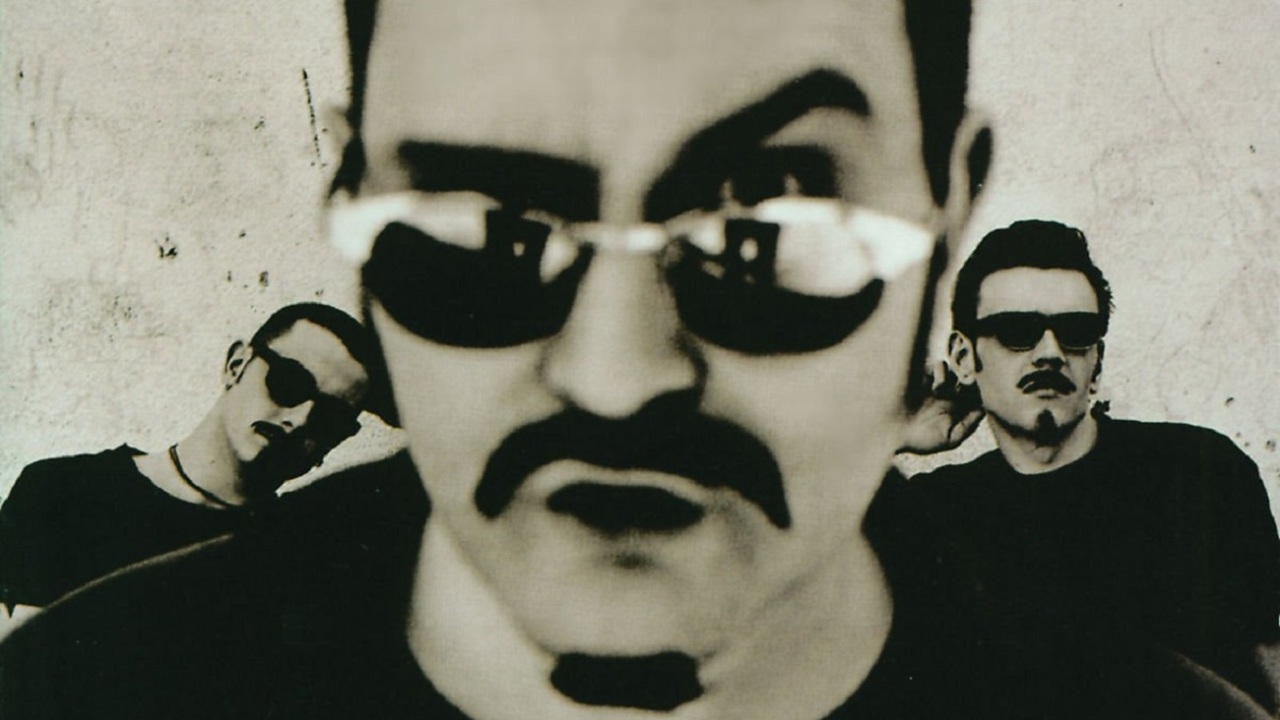In 1994, Therapy?’s Troublegum album went global, its perfect collision of melodic punk and metal connecting with hundreds of thousands of music fans across the world.
As sales of the album approached three quarters of a million – and with Green Day and The Offspring setting new sales records in America – Therapy? were ushered by A&M Records from the rollercoaster of international success into Real World Studios in Bath to record the follow-up.
The label expected the Northern Irish trio to produce a similar-sounding unit-shifter, an album of snappy Troublegum-style singles like Screamager. Nowhere and Die Laughing. The band, however, had no intention of repeating themselves.
Touring the world, from Donington to Dortmund, from Reading to Rio, had taken a dark toll upon the trio. Vocalist/guitarist Andy Cairns, bassist Michael McKeegan and drummer Fyfe Ewing found their friendships tested to breaking point by booziness, tour fatigue and the rigours of success. They went into Real World, a state-of-the-art facility owned by Peter Gabriel, in sulphurous mood.
Producer Al Clay was charged with pulling the project together, working under duress to help Therapy? create an ink-black album of introspection and isolation, a record with more in common with the grit of Girls Vs Boys, the dirt of Afghan Whigs or the rawness of their beloved Hüsker Dü.
Upon its release in June 1995 Infernal Love would receive a critical mauling by the UK music press, knocking the band’s confidence and almost derailing their career, ultimately resulting in Ewing leaving the band. History, however, would redeem the album’s reputation.
As they embark upon a UK tour to celebrate the album’s 21st anniversary, Andy Cairns and Michael McKeegan remember the difficulties and joys of making the record, one which now sits with the very best rock releases of the 1990s.
Michael McKeegan (bass): “The Troublegum thing, with three guys in black with short songs shouting at you, we really felt we’d done that as far as we could at that point. We’d done a lot of touring with that. In typical Therapy? style we always knew the next record would be something different. There was never a masterplan for Infernal Love, which is maybe the beauty of it – or maybe one of the weaknesses of it.”
Andy Cairns (vocals, guitar): “People expected us to go from selling 650,000 and playing to thousands of people at Brixton Academy to take the step up to Wembley and basically become a sort of arena band. But it was never going to happen. You’ve got the drummer and the lead singer not speaking and the band have completely lost their way.”
Al Clay (producer): “I met the band for the first time at [German venue] Munich Airport. I remember being flown out to see the gig, and I was absolutely blown away. I mean literally, it was one of the greatest gigs I’d ever seen. There were people hanging off rafters and climbing up on the outbuildings. I’m standing there thinking, ‘Wow, I’ve actually got a shot at getting involved in this?’”
Michael: ”Before Real World we were in the Chapel Studios for the demos, in Lincoln. We were writing stuff; Stories came about when we were writing there, and Bad Mother and Epilepsy. We were playing two Infernal Love songs in 1994, A Moment Of Clarity and Me Vs You. In the middle of demoing we had two days to go to the NME Awards, we went out to the MTV Awards to play so four days for that, I think Andy had gone to Ireland to do a day of press… everything was just full-on. When we finished the demos we went out and did, I think, a six-week UK and European tour in 1994. Then home for Christmas and mid-January we started recording Infernal Love.”
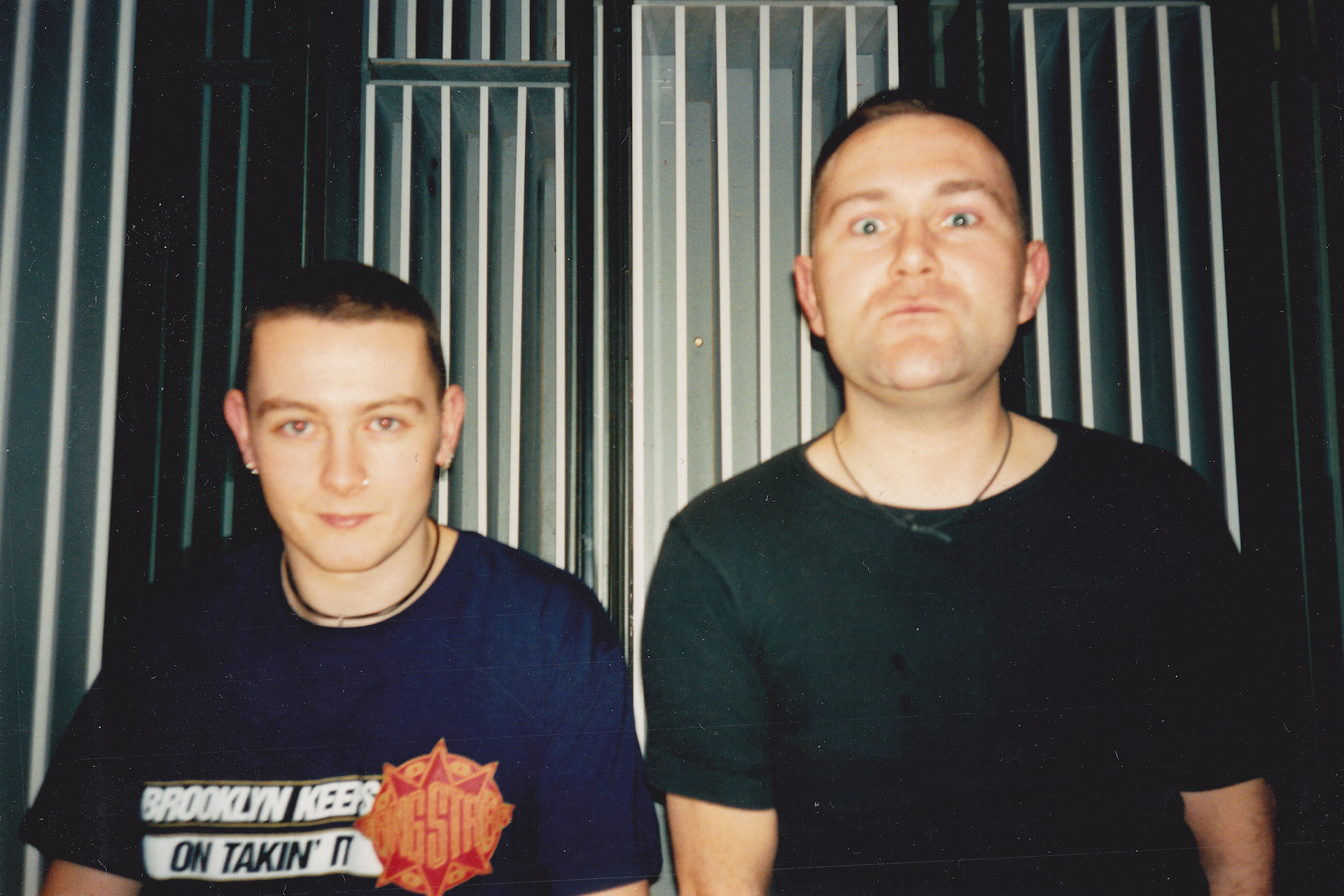
Andy: “When we went to Real World it was the most state-of-the-art studio we’d ever visited. The main room looks like the Starship Enterprise. Real World was the first time we’d ever seen the Internet too. They had a computer built in to the mixing desk. Al was the first person to bring up the Internet and show us it in action.”
Michael: “Real World was also probably our first experience of using ProTools as well. That was really interesting as we’d normally recorded pretty much on to tape.”
Al: “I now exclusively use ProTools, particularly on a lot of film stuff, doing Hans Zimmer scores where we’ve got a thousand tracks of audio to juggle. But coming up through the old school with studios with tape, it was very much a new way of doing things that brought an ease to it. You could try ideas, record everything, keep everything, as it was only hard disk space. You could come back to it later.”
Andy: “When we began everyone was quite upbeat on the surface, like ‘OK, let’s go in and do this album’. But myself and Fyfe were both exhausted. Michael never ever took drugs or drank to excess, so he would be up first in the morning. He and Al Clay were positive, while Fyfe and I would be very Eeyore-ish, very down and negative with bad vibes hanging around. I think Fyfe’s way of dealing with things was to completely switch off. At this point we didn’t communicate. It had come to the stage where if I liked any music he automatically disliked it, and vice-versa. I was listening to stuff that was completely maudlin and depressing like Big Star and the Afghan Whigs, and I think he was listening to techno. Al and Michael really made sure Infernal Love was finished.”
Al: “For me, producing a record is about coming in and being an invited or associate member of the band for as long as the record’s being made. There’s no point me going in and saying, ‘Listen boys, we’re going to start at nine o’clock tomorrow morning, finish at six, and that’s it’ – which people do, and plenty of records get made, but it just wasn’t the way this album was ever going to be done.”
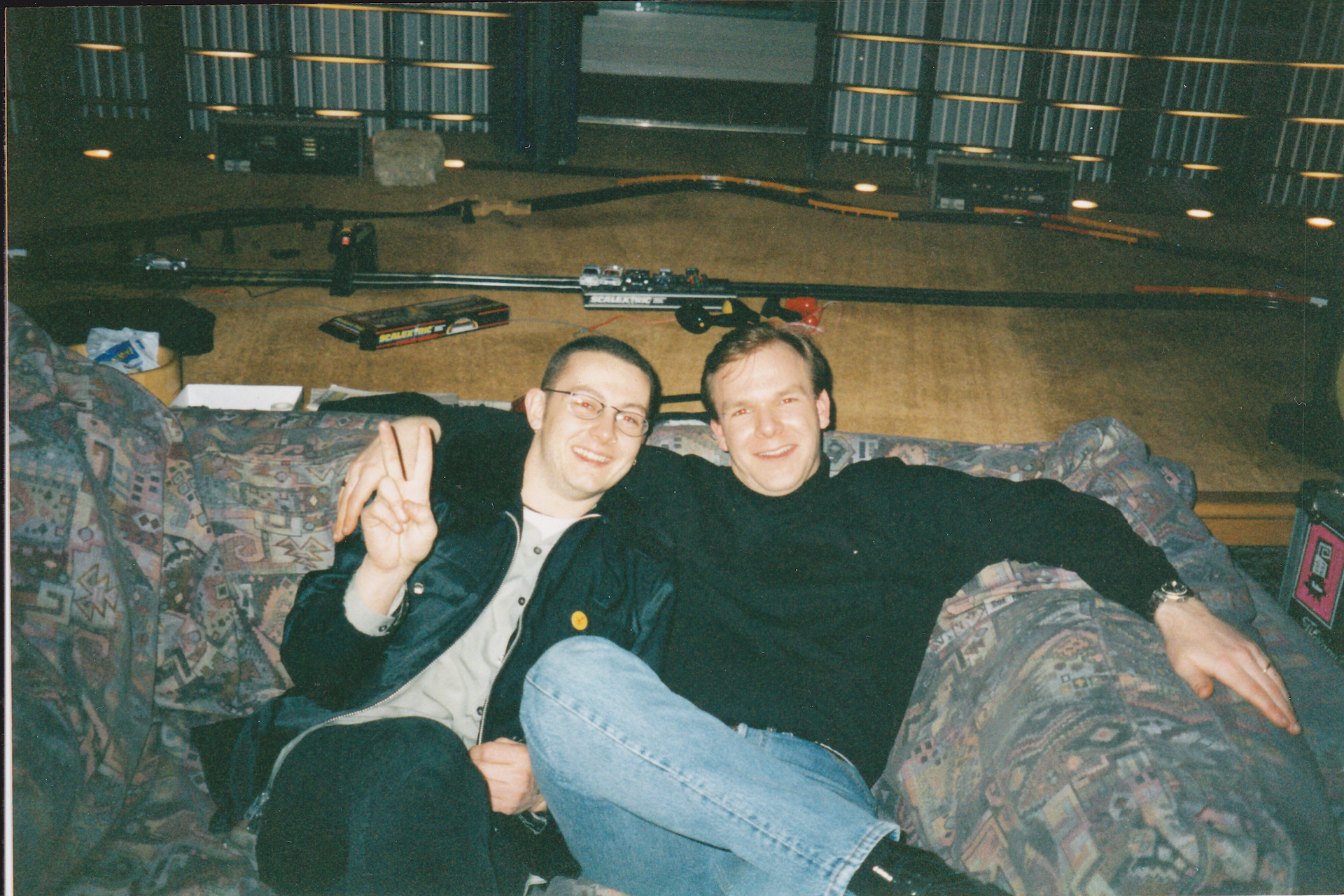
Michael: ”When we were actually in the studio, we weren’t kicking our heels. They were long days but we were working, we were trying stuff. We were really aiming for a Bad Seeds or This Mortal Coil vibe, or even The God Machine’s One Last Laugh In A Place Of Dying… which was one of our favourite albums. But we’d regularly be in the control room at six or seven in the morning, having worked through the night. In retrospect, the fact that we hadn’t got as many songs together as we should have, it actually left gaps and spaces to add interesting guitar sounds; nothing was particularly written in stone. I think that was to the benefit of the album.”
Al: ”Lyrically, it was apparent that there was a struggle, but there was beauty in the struggle as well. That was undeniable. It’s very easy to be dark and cynical about everything, but again, considering the pressure, I never felt that about Andy. I remember never being shocked by anything, or thinking that it needed to be better. We’d be talking long into the night about lyrics.”
Andy: ”I was keeping myself up, artificially, so when we were doing drums for example, I’d just be bored and hanging around drinking and whatnot. Then when it came time to unwind in the evening I’d be completely wired to the moon. I’d be staying up all night listening to music, I’d be trying to read books, and more importantly I’d be trying to get some inspiration for the lyrics. Almost every single morning, the cleaners would arrive and I’d still be up. I’d be there like a jack-in-the-box, like an impatient child, just wanting something to happen. We got into this routine and it got to the point where I was so behind with guitars and vocals that I just stayed awake the whole time and completely fried my brain.”
Al: ”I think Andy was coming to terms with what the lyrics were going to be, or – I use this word a lot – what the arc of the album was going to be. Lyrically, he was definitely on a mission to get that down. Things were all getting very dark!”
Michael: ”I imagine some producers would have gone, ‘Right guys, you need to sort your stuff out and give me a call when you’re ready to do this’. So fair play to Al, he was definitely in for the long haul.”
Al: “Fyfe came across as being very quiet, while Andy was a lot more flamboyant and outgoing and Michael seemed to be the peacekeeper between the three of them. If ever there was something that came up where Fyfe would say ‘I’m not sure’, while Andy was saying ‘Well, I am sure’. Michael would be like ‘Well, let’s talk it out and see’.“
Andy: “At that point in time, I was listening to some very ambient music. We were really into David Lynch movies, and the bit in The Shining where Jack Nicholson’s in the ballroom imagining a lot of people there. We had this idea of ‘the haunted ballroom’. The closest we got to it was A Moment Of Clarity. We had this vision of a huge big haunted ballroom with us as the showband playing in the middle of it. The music for that was half-finished. Fyfe and I really loved the drumbeat to Justify My Love by Madonna. I would extemporise vocals, just kind of do a scratch vocal live. We used to do that in Therapy?; if we came up with a song during a soundcheck we’d throw it into the set that night. Me Vs You was never completely finished; the arrangement, although we had the rough chords and the vocal melody for quite a long time so that would get dropped into the set.”
Al: “Every single song had a different approach. Lyrics seemed to be a challenge for Andy, to really nail certain things, and I definitely let him run because I absolutely felt that he knew what he was doing. It really did feel like we were on a mission to do something new and fresh that hadn’t really been done before. I hadn’t studied Troublegum or made a point of studying the band so much that we felt we had to maintain a certain shape.”
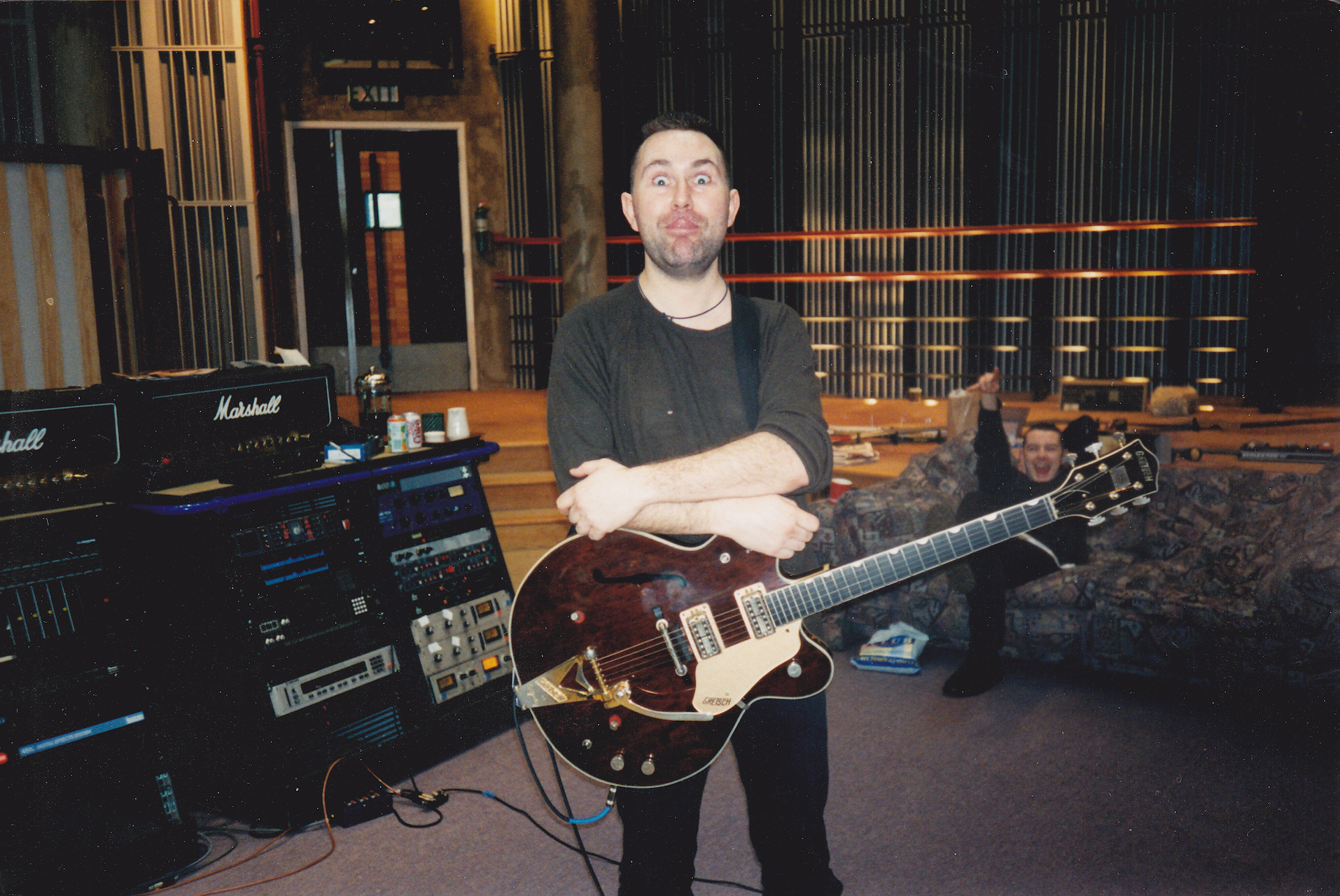
Michael: “30 Seconds was an old Therapy? song which we’d played in a very different style right from day one. It was one of the very first Therapy? tunes we ever had, that and Loose. There’s probably a reason that we didn’t record them at the time of Babyteeth, because maybe we were more excited by the likes of Loser Cop and Innocent X and stuff like that. But if somebody says ‘Well I prefer your earlier stuff’, I say, ‘Well, some of these songs were written before Babyteeth.’ That’s a key thing to Therapy? – Babyteeth is the template. There are certain elements of Babyteeth more exaggerated on Nurse - like the Innocent X or Meat Abstract side of things – whereas Dancin’ With Manson or Skyward are more exaggerated on Troublegum. On Infernal Love there are little elements right across the album, especially some of the segues and sound effects and things.”
Al: “Remember, I’m there feeling very honoured to be invited in with this band, so it was like, ‘This needs to be better than anything before’. Not in a competitive way, just ‘Let’s not do what they’ve done before – let’s take it somewhere else’.”
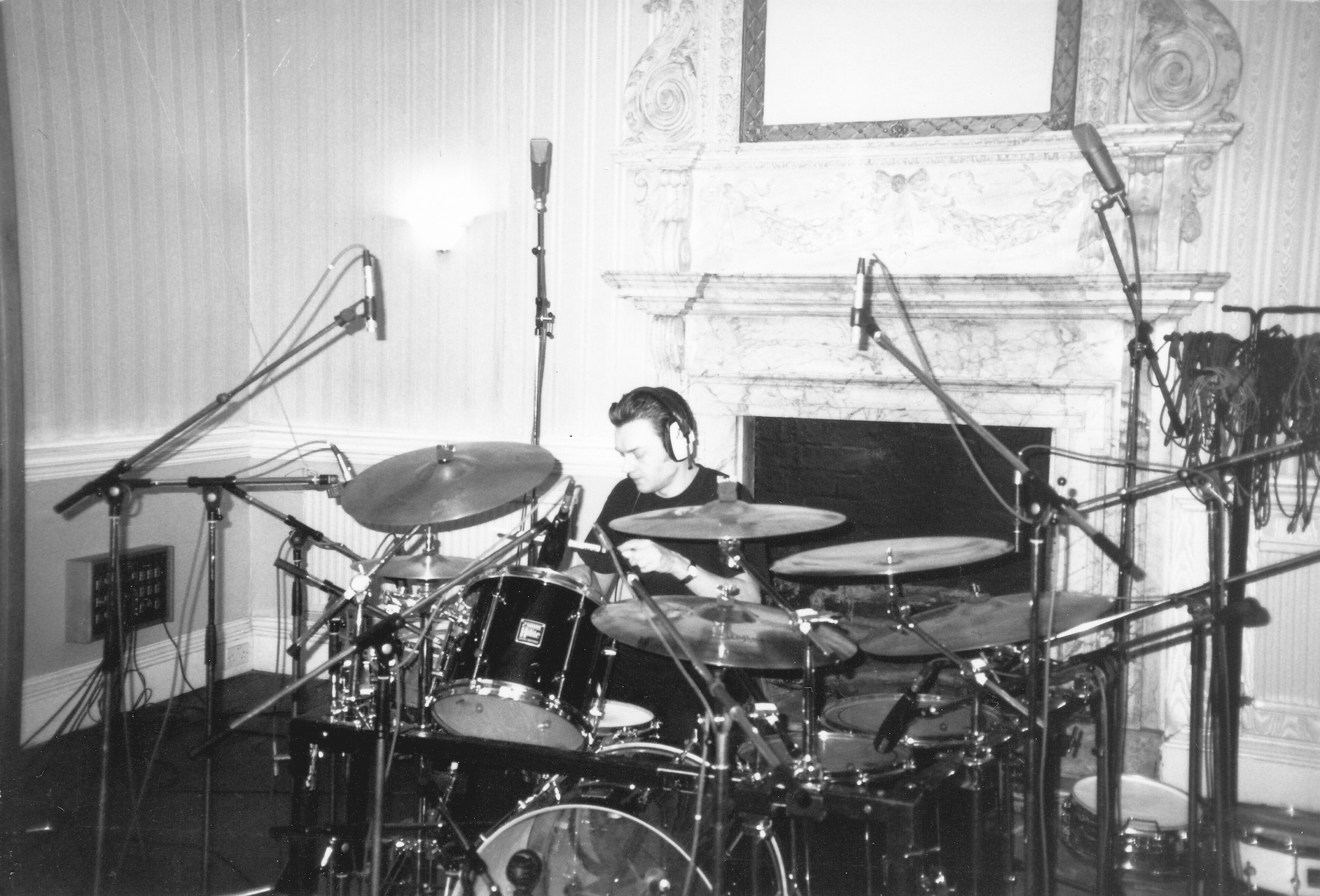
Michael: “Al would say ‘Do three run-throughs, we’ll get a good one, then do a mad one’. I remember Loose, he said we needed to play it more like John Entwhistle. You’d go off and get a cup of tea and he’d have made a composite of those takes, and made something really quite cool out of all those elements. With Diane, Al literally just took the band out to listen to the string arrangement on top of it, and it just sounded amazing stripped down. It was literally he just muted the band to check the tuning of a couple of the cellos.”
Andy: “Diane was never meant to go on the album. We’d been playing it live because we were such Hüsker Dü fans.”
Al: “Diane was a big moment, and it was also my one ‘raised eyebrow’ moment. It was obviously an important song, and we’d recorded a cranking, full-on band version. I said to Martin [McCarrick, cellist] ‘You know what? I want to do a full string arrangement. Sit with me here. If we were to do a violin part, how would we do that on a cello?’ We did a violin part, we did a viola part, we a cello part and then as low as we could go. We were taking the cello to extremes, all based around Andy’s live vocal, which we’d done to a completely different track.”
Andy: “I wanted to make the Infernal Love lyrics a bit more eloquent, but with the state of mind I was in, I was not sleeping at all. I was completely wired. I couldn’t stop writing. I had no internal editor, and I made it more difficult for myself. I tried to squeeze too many words in.”
Al: “Infernal Love was different from anything I’ve done, or done since. All good memories. It was definitely a bit of following Andy, though, seeing where he was going, then letting him go. He was definitely on his own path.”
Michael: “I knew it was going to be more lyrically complex than Troublegum. I knew this was definitely going to be a step forward. I heard Andy ad-libbing stuff in the studio, and playing Me Vs You and A Moment Of Clarity live, I knew those were kind of setting the template for the way it was going to go. We moved to another part of Real World because we were running late, into Peter Gabriel’s personal studio, which was actually an attic room. It had all these amazing instruments, old Fairlight samplers. There was this little platform vocal booth where Peter apparently liked to do his vocals, up in the highest point of the whole building. Andy was up there looking a bit forlorn going, ‘Right… right. We’ll run the tape…’ Al Clay and I were sitting watching as Andy sang ‘You only mean it / Because you look like Jesus’ which repeats, and then ‘Falling, I’m falling…’ It was amazing. That was one of those knocked-it-out-of-the-park moments.”
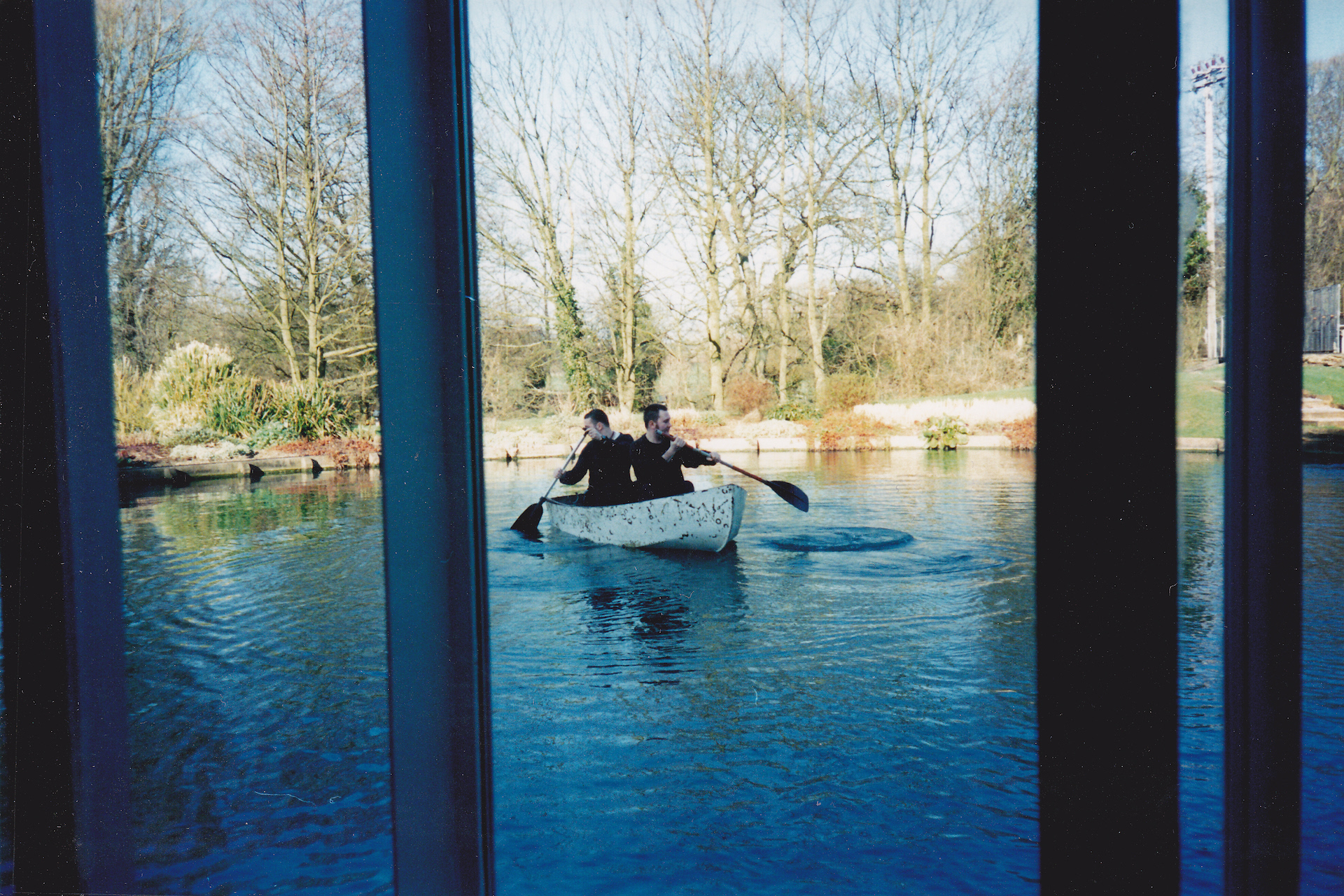
Andy: “There was a lot of fun in the evenings, if we’d finish recording and take a couple of hours off. Al was such good company. At Real World the big control room was surrounded by a mini-lake which was like a moat, and the lake had ducks. There were also Canadian mountain geese. There was a little boat which you could get into and sail around the studio. We went out in the boat to record the ducks and the geese.”
Michael: “We got the rowing boat and went up the river, but we were attacked by the ducks.”
Al: “I remember being in the room with the music cranked up, and suddenly Andy Cairns – the Dark Lord – and Michael pass me in a boat, sailing past the control room as I’m comping vocals. It’s cranking inside and outside all you hear is the lapping of the water as they float past!”
Andy: “The Canadian mountain geese, some people use them as guard dogs. I don’t know whether Peter Gabriel had brought them in for that purpose but they give you a nasty bite if you don’t see them coming. Many a night I got a little purple bruise on my backside. You’d hear this ‘honnnk!’ in the darkness and they’d fly out and snap at your backside.”
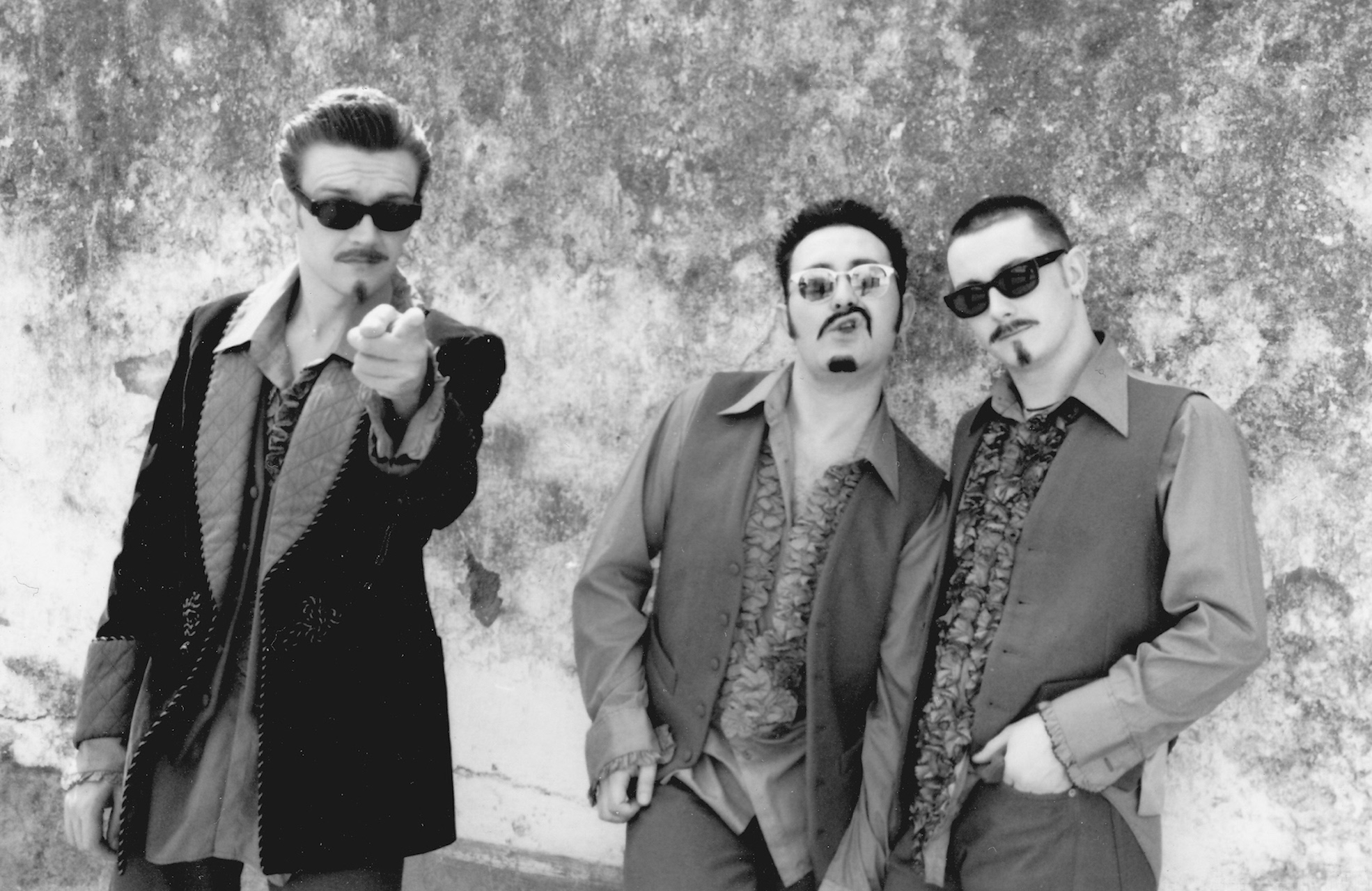
Al: “We went up to Peter’s own studio, upstairs as we pushed the time limit on the big room. I remember there being a lot of time pressure. I remember Andy feeling a lot of pressure as well.”
Andy: “The day the record company were sending the courier to pick up the master tapes, we were still doing vocals on 30 Seconds. The record company were on to Al saying ‘We have to have this record. It has to be done’. They were pushing it, they wanted to squeeze whatever they could out of the band before Britpop completely took over or whatever threat they thought was happening. I remember Al Clay going ‘Andy, come on for god’s sake, you’ve got to sing this’.”
Michael: “Looking back I’m glad we stuck at it. And like I say, it really was that rollercoaster thing. There was no way we were going to be able to say ‘We’ll pick this up in six months time’. There were shows booked, it was insane. When we finished we drove straight to the airport. The tour had started while we were still in the studio! I think we had to move the first few dates of the tour, which is mad.”
Al: “I can’t think of anything that is similar to Infernal Love. When David Holmes got the album, he [added ambient interludes] and turned it into something else again, which was really interesting. Giving him a set of songs and then being told to ‘be creative in the holes between’ made it another kind of record.”
Andy: “We went off and did gigs in Australia, with everyone asking ‘What does the new record sound like?’ The guy that worked for A&M in Australia had a Hüsker Dü tattoo on his forearm. ‘Really stoked to meet you guys. Love that Troublegum record. Have you got any copies of your new record? Really stoked to hear it.’ We had a promo copy of Infernal Love so we played it and his face just sank. Any Australians I’ve met are particularly forthright and this guy was no different. He just said, ‘Jesus mate… what the fuck was that?”
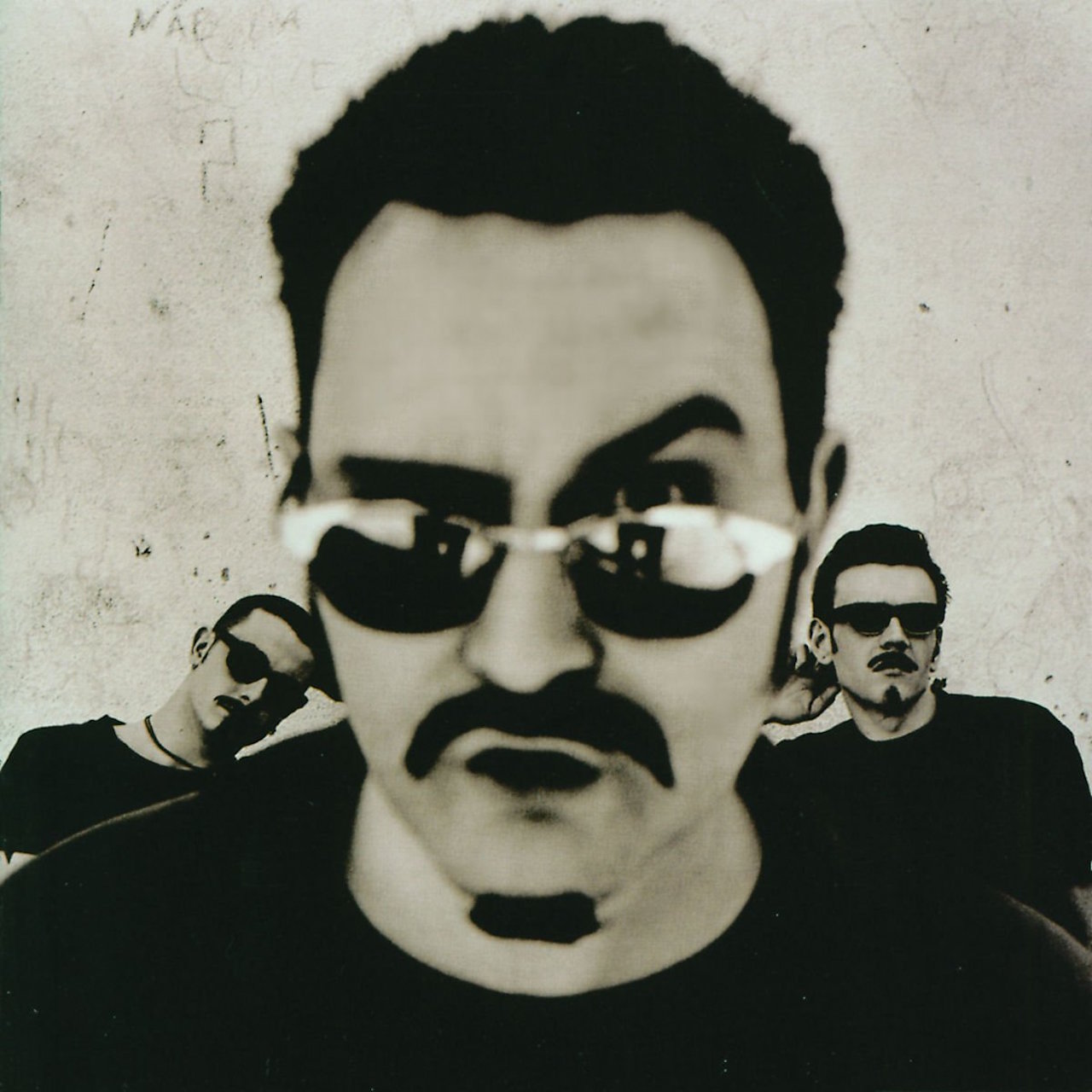
Michael: ”A lot of people expected a Troublegum Part 2. It’s probably naive of us but a lot of people had only heard Therapy? when Troublegum came out so they weren’t aware of Nurse, Pleasure Death, Babyteeth and the more esoteric strands to the band. Up until that point, Troublegum was kind of the anomaly out of all our records – and probably still is to this day.”
Al: ”That definitely wasn’t an option, to go back and make another Troublegum, as much as it was a fantastic album. This was always going to be its own thing.”
Andy: ”We’d gone from selling maybe 150,000 records to selling 650,000 records, and the majority of those people were rock fans who liked everything from Nirvana to Metallica to Pantera. Whenever you bring in concepts like cellos, haunted ballrooms, ambience and red frilly shirts you’re going to lose those people overnight.”
Michael: ”Because the recording session was stressful, it kind of tainted how I perceived the album. All you had to do was say the words ‘Infernal Love’ and I would start twitching, going ‘Oh… no… I’ve got to leave the room and have a cold shower’. But I think Infernal Love was probably the best thing we could have done. Infernal Love definitely put us in good shape, in that we can do songs like God Kicks or Six Mile Water on Suicide Pact – You First which can be traced back to Bowels Of Love. It opened up wider facets for the band. Maybe not commercially, but certainly musically – and that’s why we still make records.”
Therapy? are touring Infernal Love and more until March 12. Check their website for details. The band will also be appearing at the Stone Free Festival which takes place at London’s O2 on on June 18 and 19. Tickets are now on sale here.
